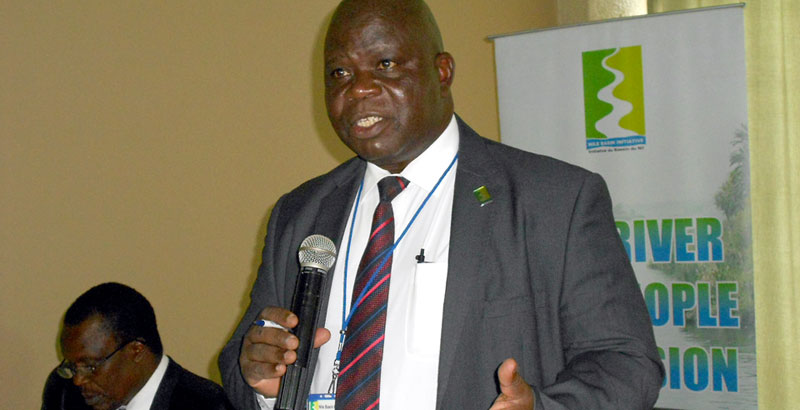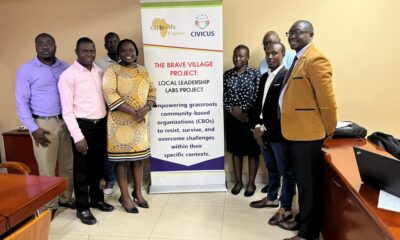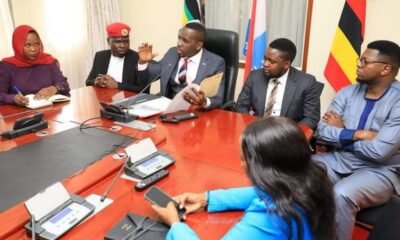News
Dependence threatens future of cooperation over the Nile
Ministers responsible for water and environment from all 10 countries that make up the Nile basin are meeting in Entebbe, Uganda this week to debate the precarious future of the organisation that is dogged by funding challenges as well as disagreements over the right of use of the Nile waters.
Motivated by the desire to pull down a colonial era regime that gave Egypt undue advantage in the use of the Nile’s waters over all other countries upstream of the river, the basin countries have over the past decade been trying to find some win-win situations that can allow them undertake development projects using the Nile basin’s water system.
Supported by the World bank and other donors, the Nile Basin Trust Fund was created to support initiatives developed by the Nile Basin Initiative aimed at promoting the sustainable use of Nile basin resources in member countries.
In 2014 however, the World Bank ended its financial support to the Nile Basin Trust Fund, a situation that has left the organisation in serious financial predicament. The situation has been made more serious by a reported unwillingness by member countries to raise sufficient funds not only to run the NBI secretariat but also fund the cooperation’s projects.
Uganda’s new minister for water Sam Cheptoris didn’t beat about the bush on the financial woes that face the NBI as he was speaking to the press this week ahead of the ministerial meeting.
Cheptoris said: “One of the main issues [to be discussed] is financial sustainability to enable smooth implementation of the NBI programme and meet core operational costs,” Cheptoris noted that the plan is to ask member countries to raise their contributions from the current US$137,000 to US$ 245,000 in the next financial year.
But some have questioned the ambition of persuading countries to raise their pledges considering that some have previously defaulted on the smaller fees.
It is what one observer familiar with the workings of the NBI referred to as, dependence syndrome, NBI member states have been unwilling to fund the activities of the meant to show that Nile Basin member countries are unable to support their own initiatives especially when donors leave.
The Nile Basin Initiative brings together ten countries that include Uganda, Kenya, Tanzania, Rwanda, Burundi, DR. Congo, Ethiopia, The Sudan, South Sudan and Egypt.
Minister Cheptoris also mentioned the desire to persuade Egypt to fully participate in the NBI activities and programmes as another mission for the ministerial meeting.
Egypt withdrew its active participation in the NBI following the signing in 2010 of the Cooperative Framework Agreement for the River Nile Basin, a protocol that empowers Nile riparian states to undertake development projects without Egypt’s approval.
Egypt has previously declared it would go to war if any country dared divert the waters of the Nile for such activities as irrigation, mega hydro power plants that can reduce the amount of water flowing to Egypt. Egypt considers the Nile as its birth right and supports a colonial era agreement that was signed by the British to prevent other countries from using the Nile river water.
One NBI insider who chose to remain anonymous argued that Egypt’s adamancy to continue persue colonial era agreements that were signed by the British on behalf of other countries is insulting.
He said: “Since 2010 when Egypt withdrew from the NBI, it has been sending representatives to each ministerial meeting. We should be asking them what do they mean by non participation when they continue to send people.”
In rejecting the view that other Nile basin countries have to wait for Egypt’s approval of other countries’ project, the source cited Ethiopia which ignored the infamous 1959 treaty and decided to build the Grand Renaissance dam, a 6000 MegaWatt hydro power plant that is expected to be Africa’s biggest day.
The source argues that Egypt has no choice but to cooperate with other member countries of the basic especially since it contributes zero percent to the flow of the river.
In March 2015, Egypt’s president Abdel Fattah al-Sisi offered ‘needless’ approval to the Grand renaissance dam when he met with Ethiopia’s Prime Minister Hailemariam Desalegn and The Sudan’s Omar Al Bashir in Khartoum to say that Egypt had chosen cooperation for the sake of allowing the development of Ethiopia. Ethiopia started diverting the Blue Nile in May 2013.
The dependence on donors as well as unwillingness by Nile basin countries to ignore the colonial era agreemennt, one observer notes, underscores the sad state of underdevelopment in which many countries remain entrapped.
Using the Nile, Egypt has built hugely successful agricultural, tourism, and manufacturing industries and helped the country become the third biggest economy in Africa, after Nigeria and South Africa.
With more countries now reportedly determined to pursue serious energy projects on the Nile, it looks likely that Egypt will have to cooperate than distance itself from the cooperation.
Comments




















